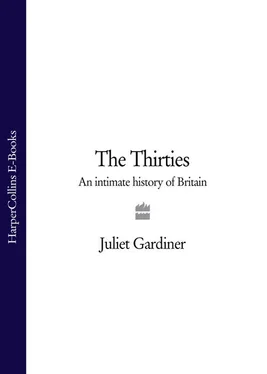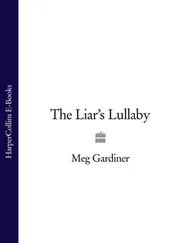On hearing that more than £6 million in gold reserves had leached away during the past month, Snowden wrote to MacDonald on 7 August 1931 stressing the ‘terrible gravity of [the whole situation]. Three millions of unemployed is certain in the near future and four millions is not out of the question. We are getting very near exhausting our borrowing powers for unemployment … we cannot allow matters to drift into utter chaos, and we are perilously near that.’ It was reported in the City that MacDonald was hopeful that a loan to help prop up sterling ‘could be placed in New York if satisfactory promises of good behaviour are made here’. But whatever Snowden and MacDonald thought about the imperative of balancing the budget — and by mid-August Snowden was predicting that the deficit would be £170 million, rather than the £120 million the May Committee had forecast — what the City regarded as ‘good behaviour’ went against the very raison d’être of the Labour Party: to represent the interests of working people. Now a Labour government that had proved unable to tackle, let along conquer, unemployment was being expected to penalise those very people who were already suffering most from this failure. ‘It certainly is a tragically comic situation that the financiers who have landed the British people in this gigantic muddle should decide who should bear the burden,’ again expostulated Beatrice Webb.
The Bank of England’s agent in New York, J.P. Morgan & Co., reported that Wall Street needed to have confidence in the financial competence of the British government, and that no further loans would be forthcoming unless an economy package could be put together which satisfied the opposition parties. But this proved impossible. The Conservative Party insisted that taxation must not rise, and Neville Chamberlain, the shadow Chancellor, insisted that the economy package the government was proposing must be increased by around £30 million, while the Liberal leader Herbert Samuel insisted that there had to be ‘drastic action’ on unemployment insurance.
There was another option to swingeing cuts, one that Keynes had come round to favouring, and even Bevin had ventured was not unthinkable, and that was coming off the Gold Standard, and allowing the pound to settle at a lower value than its parity with gold. But no other member of the government or opposition even contemplated such apostasy: the Gold Standard was a sine qua non of the financial stability necessary for a permanent revival of trade, industry and employment, and all other economic decisions had to be taken in light of this given. Anything else would, in the words of the usually cautious economist Hubert Henderson, who was no Treasury man, let loose ‘a real déringolade [meltdown] which would lead to the complete collapse of the currency which in turn would lead to far harsher cuts than any so far contemplated’. In what is probably an apocryphal story, Sidney Webb is supposed to have gasped, ‘I didn’t know we could do that,’ when Britain did abandon the Gold Standard a couple of months later.
Meanwhile, the Cabinet accepted that the budget had to be balanced to restore confidence in sterling, and no one said anything about coming off the Gold Standard (rather Snowden warned the Cabinet on 8 August that the effect of departing from the Gold Standard would be a 50 per cent fall in the standard of living of working men). Hour after hour that humid August the Cabinet wrangled, cutting, trimming. By the twenty-first, agreement had been reached that rather than making economies of £78 million and cutting unemployment benefit payments by £48 million, economies would be reduced to £56 million, unemployment benefits cut by £22 million. But the City dismissed the new targets as inadequate — and warned that gold reserves would probably only last for four more days. Chamberlain for the Conservatives and Sir John Simon for the Liberals said the same; the two opposition parties would ‘turn them [the Labour government] out immediately the House met’ (being August, Parliament was in recess), insisting that it was MacDonald’s duty to avoid the crash. The Conservatives would give him ‘any support in our power for that purpose, either with his present, or in a reconstructed government’, and Samuel committed the Liberals to that line too — stressing the immense urgency of the situation.
The General Council of the TUC, seeing no ‘equality’ in the sacrifice they were being asked to make, and convinced that the situation was not quite so desperate as was being alleged, refused to agree to any cuts in benefits or in the pay of teachers or policemen (‘Pigs,’ spluttered Sidney Webb, meaning the TUC) — though it was prepared to condone those for judges and ministers. ‘Practically a declaration of war,’ MacDonald noted in his diary; he must have felt he was staring at a brick wall. The bankers insisted on cuts; the trade unions insisted on no cuts. As for support within Cabinet, according to his son Malcolm, MacDonald was ‘disgusted with the behaviour of many of his colleagues; they lack grasp of the situation and the guts to face it … He will carry on if he can, but it is more likely that the situation will be such that he has no alternative but to resign.’ At 10.30 a.m. on Sunday, 23 August 1931, MacDonald set out for the Palace apparently intending to resign ‘with the whole Cabinet’, but the King made it clear that should the Labour government resign, his view was that MacDonald should attempt to ‘carry the country through’ with Conservative and Liberal support.
That evening nine of the eleven members of the Labour Cabinet (including the key player, the Foreign Secretary Arthur Henderson) made it clear that they would not agree to a 10 per cent cut in unemployment benefit, by far the most important part of the package. Clearly the government could not continue. MacDonald was confronted with some unpalatable choices: the Labour government could resign, hand over to the Conservatives and Liberals and oppose the cuts in unemployment benefit from the opposition benches, when in fact MacDonald considered them to be necessary; he could resign the Labour leadership and support the cuts; or agree, in his daughter Sheila’s words, to be ‘P.M. of coalition govt. (this is what King wants) Wld. have to face whole antagonism of Labour movt. Seeming desertion of principle & playing for office. Lose hold of party.’ MacDonald havered: on 24 August he returned to the Palace.
The King again tried to persuade him that resignation would be a dereliction of duty: MacDonald must put country before party and head a National Government. The Prime Minister agreed that in the circumstances he would be prepared to remain as head of a government in which the Conservative and Liberal leaders Baldwin and Samuel would also serve ‘until an emergency bill or bills had been passed by Parliament, which would restore once more British credit and the confidence of foreigners’, after which time Parliament would be dissolved and a general election would be fought along party lines. ‘Certain individuals, as individuals, [would be invited] to take on their shoulders the burden of government’ in the new configuration. ‘MacDonald has been crawling along the hedgerows in search of Labour ministers these last few days,’ wrote Hugh Dalton, who was not trawled. In the event, Snowden, Thomas and Lord Sankey, the Lord Chancellor, were the only three Labour Ministers who agreed to serve in the National Government.
‘It was a banker’s ramp’, charged the Minister of Agriculture and Fisheries, Christopher Addison, on the day of his resignation. The TUC also suspected as much, and the Daily Herald made the accusation public on 25 August. Bankers, it was claimed, had used the economic crisis to dictate government policy. But no one in government had doubted the bankers’ insistence that the budget had to be balanced: it was how it was to be balanced that was at issue. The American banks made a loan dependent on a balanced budget, but insisted that the way in which that was achieved was ‘quite outside our province’. But in the end, since the other two political parties were insisting on cuts in unemployment benefit payments as a condition of their support, while the TUC and an important and sizeable minority of MacDonald’s own Cabinet would not agree the 10 per cut, the Cabinet resigned.
Читать дальше












